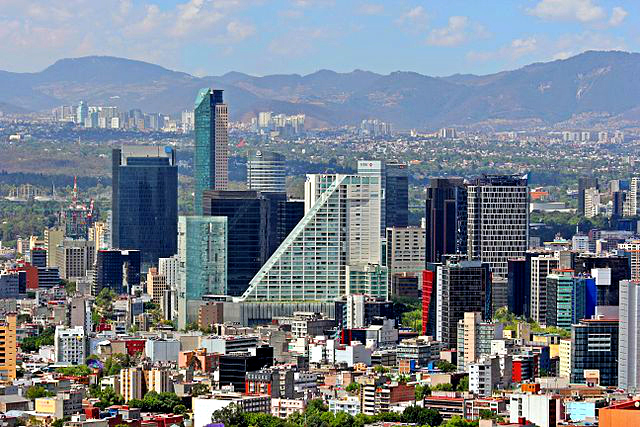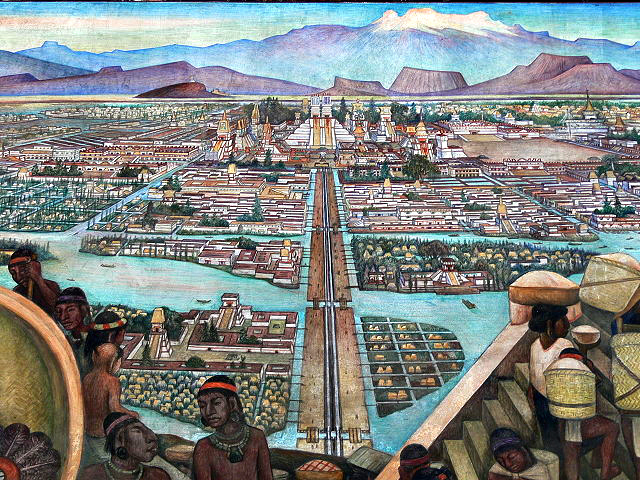Link #16: Mexico City Is Sinking!

When someone mentions sinking, you may think of a ship, right? It’s the natural thing to do because something that is sinking is usually on water. So, what happens when you put a whole city on a body of water? Mexico City is one such place, and through a combination of bad luck and bad decisions in their past, the city is now sinking and sinking fast!
Is Mexico City Really Sinking?

Sounds unbelievable, doesn’t it? But it is very much true. Mexico City, the capital of the country of Mexico and the second-most populous city in the world is indeed sinking.
The most surprising thing about this is the speed at which the city is sinking. In the last century, experts estimate that the city has sunk by approximately 30 feet (9 meters). This is actually the minimum amount the city has sunk. Since different areas of the city are sinking at different rates, there are areas that have sunk by as much as 35 feet (11 meters).

There are about 24 million people living in Mexico City. Its rising population is one of the primary reasons why it is sinking at such a fast pace.
In fact, the population of Mexico City is responsible for a lot of problems in and around it. In the last article, we mentioned how the growing human population of the area has resulted in the endangered population of the volcano rabbit.
Why Is Mexico City Sinking?

This is the big question. What could make a whole city sink so far, so quickly? The answer is complex. Currently, the main reason why the city is sinking is that it is located over an underground layer of water (aquifer) and the people are using the water too quickly.
However, this is the simpler explanation. The fate of the city is dependent on a number of things. These are:
- Mexico City was first built by the Aztecs in the 14th century. It was built on an island in the middle of a lake, because that was easier to defend.
- When the city’s population started to grow, artificial islands were built and connected with the help of paths known as causeways.
- When the Spanish conquered the Aztecs in the 16th century, they decided to drain the lake altogether.
Today, the city is built on soft ground over aquifers, which are also its source of water. The problem is that the people in the city draw water much faster than the aquifer can refill by natural means. In fact, up to 70 percent of the water in the city comes from these aquifers.
What Does This Mean to the People in the City?

So, how does the sinking feeling affect the people of Mexico City? If you were to visit, you’d immediately notice that something is off. You’d see the buildings leaning slightly.
You’d notice cracks in the streets and weak foundations. Practically, the city is having trouble with keeping historically relevant buildings intact, as well as with supplying water to its people.
You might also be interested to see:
- Ten Essential Facts You Need to Know About the Aztecs!
- Eight Reasons the Aztecs Lost Their Empire!
- Human sacrifice – 10 Aztec sacrifice facts!
Can you Guess the Next Link in the Chain?
What will be the next link in our Chain of Facts? Think you might know? Scroll down to add a comment below with your best guess.
You can view the full list of links in the chain here.
Sources:
http://www.wisegeek.com/is-mexico-city-really-sinking.htm
http://go.hrw.com/math/cnn/course3/3_1_Sinking/3_1_Sinking.htm
http://seattletimes.com/html/nationworld/2016310507_mexicosinking25.html
http://www.theguardian.com/science/2004/may/06/thisweekssciencequestions
http://news.bbc.co.uk/2/hi/programmes/from_our_own_correspondent/4508062.stm









